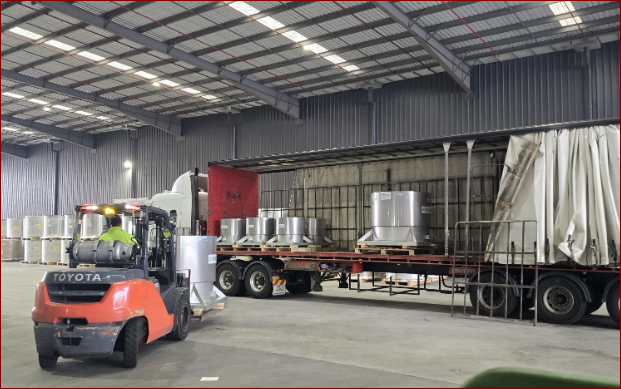For Australians managing their own super funds through an SMSF, investment strategy often centres on tax outcomes, autonomy, and long-term returns. But freight costs in SMSF portfolios are rarely considered in depth, despite their potential to erode asset performance. Whether you’re invested in non-residential property, supply chain equities, or warehouse-tenanted assets, freight is not a marginal concern. It’s an operational pressure that flows through to net returns.
Freight costs in SMSF portfolios
According to the Australian Taxation Office, around 11% of Self-managed super funds hold non-residential property, including industrial and logistics sites. These assets rely on functioning freight corridors and predictable transport costs. While freight isn’t listed on any balance sheet line item, it quietly shapes demand, lease outcomes, and long-term value.
How freight affects returns from industrial property
Suppose your SMSF owns a warehouse outside Brisbane. The lease looks reliable: a national tenant on a multi-year agreement. But the tenant is a logistics operator. Each time diesel prices increase or container processing slows at Port Botany or the Port of Brisbane, the tenants’ costs grow, and their margins shrink. That pressure can affect rent negotiations, lease renewals, or even early exits. Properties near corridor routes such as Brisbane to Sydney or Brisbane to North Queensland often attract demand, but only when freight movements remain smooth. Partnering with a freight company Brisbane businesses trust to handle regional deliveries can materially affect tenant strength. These regional service models support lease stability and influence your SMSF’s exposure to vacancy risk.
Freight exposure beyond property
Freight exposure goes beyond property. Some Self-managed super funds hold shares in transport operators, units in freight firms, or own vehicles through trading trusts. These assets are directly affected by fuel prices, road user charges, and delivery delays. In July 2023, the national road user charge rose to 28.8 cents per litre. For operators on thin margins, that shift can mean the difference between profit and loss. For investors, it adds volatility. Exposure through leasing structures or unit trusts brings freight inflation closer to your returns than many trustees realise.
Freight isn’t just the tenant’s problem
Some trustees assume their SMSF accountant will automatically factor in freight-related risks. But unless your accountant is tracking logistics inflation, tenant reliance on road transport, and corridor pressures, these exposures may go unaddressed. Freight isn’t just a tenant cost. It’s a structural risk to landlords and investors. A specialist SMSF accountant who understands how freight volatility impacts compliance and planning can help identify issues early. DKM Accounting, for example, works with trustees to map operational risks embedded within their asset mix.
Building a freight-informed SMSF strategy
If your SMSF leases to logistics tenants, holds equities in transport or supply chain sectors, or operates in corridor-exposed regions like outer Brisbane, freight costs should be part of your asset review. Trustees should consider diesel price trends, port surcharges, customs delays, and vacancy fluctuations. In 2022, the REIA flagged rising industrial vacancies in fringe metro areas following fuel spikes and port congestion. These conditions weren’t temporary, they exposed how fragile certain returns can be when logistics break down.
From passive holding to strategic oversight
You don’t need to follow every truck or shipment, but you do need to understand how freight pressures shape long-term performance. The most stable asset isn’t the one with the longest lease; it’s the one least exposed to disruption. That might mean reviewing corridor exposure with your accountant or checking how freight-dependent your tenants are. Because when freight slows, returns follow.
DISCLAIMER – “Views Expressed Disclaimer: Views and opinions expressed are those of the authors and do not reflect the official position of any other author, agency, organization, employer or company, including NEO CYMED PUBLISHING LIMITED, which is the publishing company performing under the name Cyprus-Mail…more






Click here to change your cookie preferences